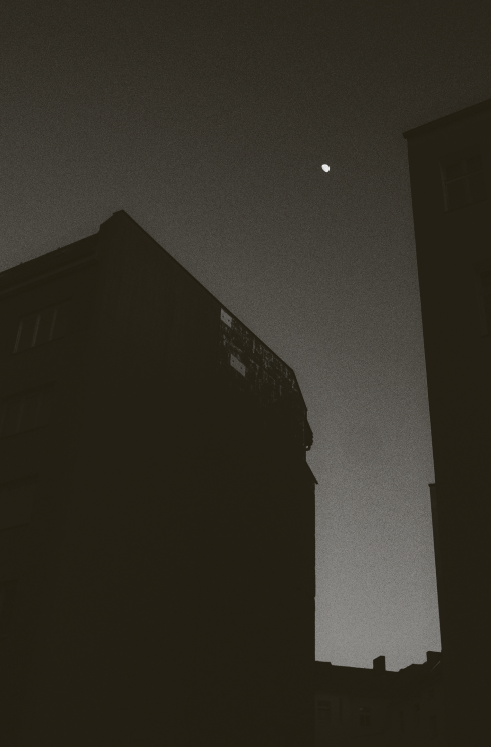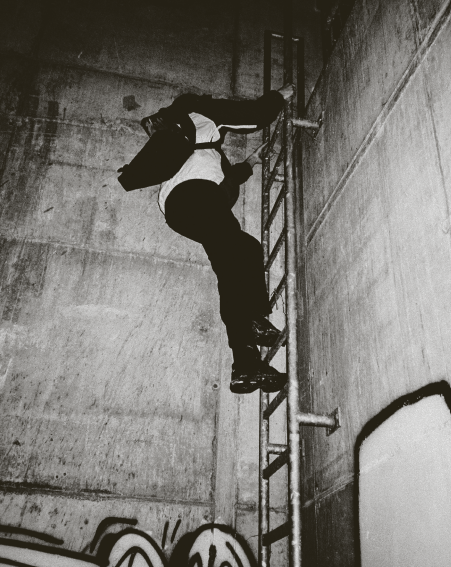Interview with Kate Nash
Kate Nash is a musician and feminist who had her first number one hit at the age of 20. She has recently released her third album “Girl Talk”. We met her before her concert in Berlin and talked to her about sexism in the music industry, her political activism in Ghana, and racism in England.
Hi Kate. With your new album “Girl Talk”, you had a lot of changes. You have a new band, you started your own record label, and you crowdfunded the album. Was there some pressure by your label to get back into a certain “Indie-Pop” genre, or did you just want to have complete creative control?
It’s weird. I feel like, the more I’ve been talking about it, the less I understand what happened. I was going through a weird couple of years, a lot of shit happened to me and I tried to work through that. I kept on writing and I really wanted to release this album. I think if I hadn’t put this record out I might have gone mental. Then my record company visited me in the studio, just one guy for one day. He didn’t tell me to change something about it or anything. That was very strange and then last summer they dropped me. Maybe they knew that I wouldn’t change the album because I was very passionate about it.
So then you decided to crowdfund it. You also switched from piano to bass – an instrument you taught yourself how to play.
Yes, I paid for it by myself. The studio, the printing, the tour and everything. I was frustrated and I felt held back. It just felt really good to know that you are in charge.
The music is also very personal. In another interview you said, you sing in songs about certain things you can’t say to people’s faces. What are your feelings when you sing such a song in front of hundreds of people?
Well, last year, a lot of what was still going on was in the songs I was singing. So I often felt “What the fuck am I doing?”. I am trying to get over this and now I have to face it every night. Sometimes I wanted to cry during the shows. But after a while it becomes easier, and the songs change and make me think of something else.
When you say that you sometimes would have liked to cry on stage, are you doing it or are you stopping yourself because it might be unprofessional?
I think it would be okay if I would be exposed to my fans, because they really know me, and they really get me. When I had hard and troubling times, they even made me a book and sent me videos to cheer me up. They are very supporting.
You are also known for your support for women. You make statements at your shows and you have several songs dealing with sexism. There are few women in the music industry who call themselves feminist and who openly oppose sexism. Björk, for example, once said, “If I would call myself a feminist, it would isolate me”. How do you feel about these statements?
I can understand why they are doing this. I mean, there have been a lot of feminists arguing with each other that there is not “One Clear Feminism”. Feminism often gets a bad reputation, because some people believe that feminists hate men – the ‘Feminazi’ cliché. For me, it’s something really positive. It empowers me, and it’s cool to stand up for women, to be able to support girls and to change something for girls. I think girls should be able to make choices for their life, from a place where they are really confident and happy instead of being told all the time that they are not good enough, or they can’t achieve this or do that. And if I can work towards that, then that’s feminism to me. If you want to go out with that guy, wear those clothes, have a lot of sex or be celibate, whatever it is – if you can say, “this makes me feel good”, then you should be able to do this. We won’t be able to all agree on the same thing, but we should be able choose for ourselves how we want to live.
You also travelled to a local community in Ghana, where you also sang with a group of black girls. You went there as a global ambassador for the “Because I am A Girl”- initiative and as a white British singer. Do you see any obstacles in this partnership, or can you see some ‘white charity’ in this?
I didn‘t really have a feeling that there was a hierarchy, and it‘s not really ‘charity’ either, because the people have the ability to empower themselves. They are giving those 15-year old girls the means to take their lives into their own hands. I have witnessed how these girls talk with each other about things like sexual harassment, bullying and hygiene.
You were also involved in supporting the people who had become homeless during the London Riots in 2011. How do you explain these riots? We are here in Germany, not in the U.K., so we only hear it from the news. Do you think it’s about race or class, and what do you think about the racism in the U.K. right now?
I think it started out as a race thing, because this young black guy got shot by a policeman, but then the protest became violent and then it stopped being about race; and even the family of the murdered boy weren’t happy about it.
A lot of independent businesses were destroyed. Some of them that were owned for more than forty years were suddenly burned down. And it spread all over the country. But regardless of why it happened, it is clear that something is wrong. Sometimes I think I grew up in a bubble. I come from very liberal parents. I went to a performing arts school, and there were all different kinds of people, different religions, different sexualities. I’m sure that there are a lot of problems out there, but I am not black and I don’t have to face them and so I can’t really tell how it feels.
Do you still go to demonstrations? In London or elsewhere?
There is this really cool thing called “Rock against Racism” in London. I did some shows with them maybe two years ago.
Have you been involved in feminist groups or activities? Do you even have time for activism or to read feminist literature?
I had this project in school with young girls, where we learned to play instruments and to write poems. It was amazing to see how they evolved. In the beginning, they were not able to perform in front of their class, and in the end they performed in front of hundreds of people. Hopefully after my tour I will have time for that again. I’m also trying to do this during my shows. I try to be an example to others. A lot of girls are tweeting me that after my concerts they want to start a band or they got their guitar out of the basement again.
Do you consider yourself a Riot Grrrl?
Yeah, I think so. The whole scene was very important to me. Maybe I don’t consider my music or my genre to be Riot Grrrl – it‘s more of a state of mind for me.
Were you a Riot Grrrl before you released your first album? Or did it happen afterwards?
I think… no, I’m sure it was after the first album, because I was exposed to a lot of sexism. There were always men around me. At the beginning I didn’t really notice, but often I entered a room and then there were ten men and not a single woman. Then I made this effort to make a change, within my band and the bands I play with.
Last question. We come from a variety of anticapitalist groups. Empowerment is really important, but when everyone is empowered there is still a lot of competition, and competition doesn’t really make life nicer – it makes it horrible. What comes after empowerment? How can we get rid of this competition?
I think that changes when someone feels really good. I watched the girls’ behavior at school and they are all from different groups. There was this goth-kid, the popular girl or whatever. They share the poetry they’ve written and then they applaud each other, and they were really supportive of each other, telling one another “You’re going to be fine” and helping each other on the stage. It didn’t really feel competitive. I think it’s about what kind of idea your empowerment is. If you’re telling someone “You are worth it, you are worth as much as everyone else, why not try this or try that, make your own choices.” that’s not pushing someone to be competitive.
Thanks for the interview.
For further reading


